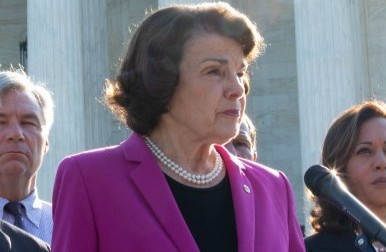In 1992, Dianne Feinstein made history as part of the “Year of the Woman” wave, securing a Senate seat. Her political acumen was further demonstrated during the controversial Senate confirmation hearings of Supreme Court nominee Clarence Thomas.

Sen. Dianne Feinstein, a political icon whose career spanned several decades, made an indelible mark on American politics. Her journey began in the tumultuous year of 1978 when she assumed the role of San Francisco’s mayor in the aftermath of tragic assassinations. This pivotal moment not only thrust her into a leadership position but also showcased her ability to navigate crises with poise.
Dianne Feinstein has died at 90
Feinstein’s leadership style, characterized by centrism, proved effective but occasionally sparked controversy, especially in liberal San Francisco. Her decision to veto legislation supporting same-sex partnerships and her opposition to “comparable worth” legislation drew criticism from more progressive quarters. However, these decisions also endeared her to conservative voters and business groups, solidifying her reputation as a politician who governed from the center.
The 1984 Democratic National Convention marked a turning point for Feinstein, propelling her into the national spotlight. Her potential inclusion on the shortlist for Walter Mondale’s running mate showcased her rising stature in Democratic circles.
Meanwhile, during the devastating AIDS epidemic, Feinstein’s commitment to public health became evident as she led San Francisco’s efforts, outspending the federal government on AIDS initiatives in the mid-1980s.
In 1992, Dianne Feinstein made history as part of the “Year of the Woman” wave, securing a Senate seat. Her political acumen was further demonstrated during the controversial Senate confirmation hearings of Supreme Court nominee Clarence Thomas.
Leveraging public dissatisfaction with the hearings, Feinstein successfully campaigned for the U.S. Senate, focusing on issues like a woman’s right to abortion.
Once in Washington, Feinstein became a staunch advocate for gun control, achieving a significant victory with the passage of a federal ban on assault weapons in 1994. Despite facing a tough reelection battle later that year, she prevailed, solidifying her reputation as a diligent and tenacious legislator.
Sen. Dianne Feinstein‘s legacy is one of resilience, accomplishment, and a commitment to public service. Her ability to navigate complex political landscapes, from local governance in San Francisco to the halls of the U.S. Senate, reflects a career marked by both triumphs and challenges, leaving an indelible impact on California and the nation as a whole.
Shocking Twist in Suzanne Morphew’s Tragic Disappearance – New Revelations Unveiled!
